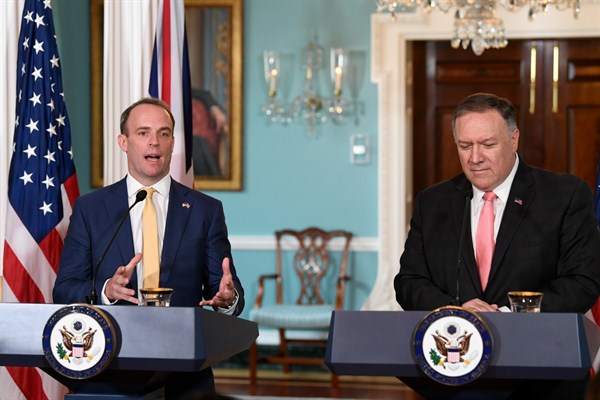Newly installed British Prime Minister Boris Johnson is eager to negotiate a trade deal with the United States. But should he be? And what price is he willing to pay?
Other countries—China, Japan and the U.K.’s neighbors in the European Union—are all negotiating with the U.S. under duress. They seem to be doing their best to stall things for as long as possible in the hope that President Donald Trump won’t be reelected next year. By contrast, British International Trade Secretary Liz Truss and Foreign Secretary Dominic Raab came to Washington last week to push for trade negotiations to start as soon as possible.
Obviously, the urgency relates primarily to the looming Brexit deadline at the end of October. Come Oct. 31, the U.K. will either have a new deal to manage its breakup with the EU, or it will “crash out” with no deal. It may be that Johnson thinks that negotiating with Washington will give him leverage in the negotiations with Brussels and help him get a deal more to his liking. And if not, having a backup trade arrangement with a major partner might keep some concerned Conservative Party members from voting with others to block a no-deal Brexit.

